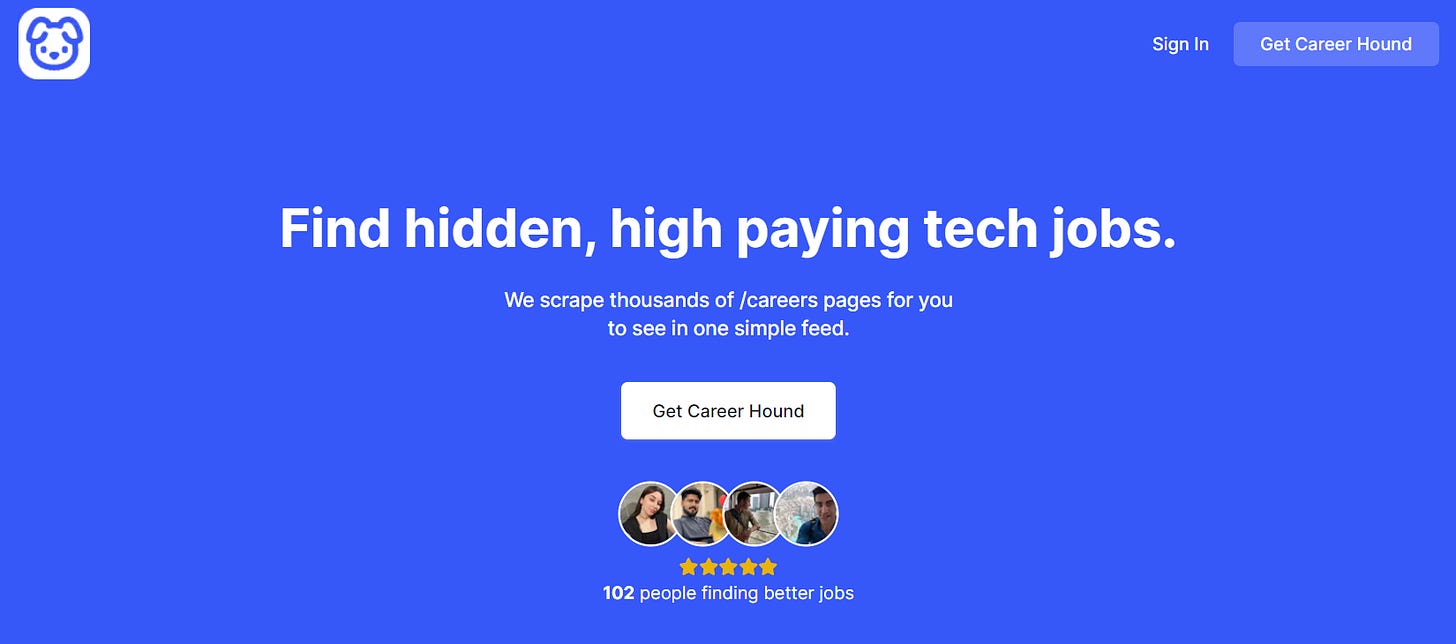How to get a cleantech job. Or any job.
Secret strategies that involve underused market research, insights from employee complaints, and new job aggregation tools that you may not have used before
We recently published a piece highlighting the growing number of energy-related tech jobs. We then shared a piece on carbon capture jobs and how to think about different companies’ advantages. Those jobs are worth sharing as reducing friction and getting people in those roles faster helps the environment. Several people interested in these roles asked for tactical ideas on how they would find others, prepare for the interview, and get the job. That is our focus today, and we share unique, hopefully new tricks.
Emissions Decisions is a newsletter reviewing our thesis on environmental solutions. Thank you for reading it.
Existing subscriber? You don’t need to do anything, but please share.
Was this forwarded to you? Become one of our subscribers by clicking below.
Set up alerts, try new platforms, and check recent fundraising in the sector to see who is hiring and growing
You can set up alerts for websites, LinkedIn pages, and profiles to see when new roles are posted. When roles are identified, the best way to get an interview is to talk with people at the company. There is always the option to pre-empt this by creating these relationships earlier so stakeholders are partners who let you know about the new roles. You can develop these relationships with cold inbounds, but there are many more natural paths to increase your odds (i.e., cleantech events are booming, and let us know if you ever need a list).
When you reach out to people, you must 1) provide value first and 2) be easy to interface with.
Providing value is more straightforward than it seems and can range from intros to materials to ideas. Just think about what you’d do on your first day if no one gave you direction and share that with people at the company. Would you build a database of competitors, scan your network for sales intros, find relevant articles, or review how the latest regulation might impact new features? These are small but valuable tasks to which you likely bring a unique perspective, and people at the company may be too busy to pursue. If you have no idea what you’d do without direction, you may not be excited to work there. This is also good to understand.
Being easy to interface with saves people time and is more likely to get a response. This means being very clear with them on what you are trying to achieve. You can provide this context in person at a conference or in written correspondence. For example, “I’d love to grab a coffee” is difficult for someone to prioritize compared to “I love what you’re doing, and I want to understand more to work there in the future. Can we connect on that?”. When you take this approach, the person may engage in the meeting when they are hiring or send it internally to someone else who is hiring. This second part is way easier to do with the context you provided. i.e., “This person wants to work here, perhaps for that role you are trying to fill.” The alternative of “Someone wants to have coffee with me for some reason, can you have coffee with them instead?” never works, and it closes doors for you. People also like to know that others value what they do with their time. It’s human nature. Asking for something specifically because you value it is something they like to hear, even though it puts you more at risk for personal rejection. If you want big things, it means more transparent conversations.
If you are still looking for roles, many great tools have now been created that aggregate all the sites and even find roles not posted on the major sites. For example, take a look at Career Hound here. We are happy to share other ideas.
You can be very targeted in your process and wait until the companies you won't have the roles you are looking for, or you can actively target aggressively growing companies. Tracking recent raises is an easy way to become aware of these companies. Crunchbase news and lots of other publications regularly share when companies raise funds. Grant announcements are another great source, as many grants are contingent on hiring and provide a great catalyst.
Candidates at Cleantech companies when they announce a huge raise
Read employee complaints to understand what managers want
It’s a glorious time when more data is available on the internal workings of public and private companies than ever before. An easy example for job seekers that is often used in the wrong way is Glassdoor.
Job seekers often check the platform but typically use it to understand fit. While this is extremely useful, an underappreciated asset is reading what people feel they are being pushed on. What you want to find are these complaints. “My boss only cares about attention to detail.” “All that matters is compressing the launch timeline.” “They say I’m not focused on the customer enough.” Everything that people complain about getting pushed on is what the management and board care about more than anything. These are likely the things that they want candidates to repeat back to them in interviews. If you disagree with what they are focused on, that’s valuable information, too, because that means it's not for you. Reddit is great for this insight, too.
Review company filings to become more knowledgeable than the person interviewing you
Many cleantech companies remain private given the early stages of the industry. As a result, it’s easy to check the website exclusively, but this is a cop-out for job seekers who don’t want to put in the required prep. Most large cleantech companies, even if private, will have done some placement or have a debt instrument that forces them to put way more corporate information on the web than you’d expect. For public companies, you’ll find more information than you ever need. If you are in the US, these documents are on EDGAR and SEDAR if you are in Canada. There is more information on EDGAR and SEDAR than most middle management and below would think even exists at the company.
You can usually start with the company’s name and see options, as the brand name might differ from the legal name. You can always check news releases to see the legal name.
Existing employees may not get the same level of detail in town halls and internal meetings simply because people are busy and no one communicates well. This lets you come better prepared than many people you chat with. The most valuable items in the filings are typically the drivers behind the growth forecasts, which is what you need to work hard on, and the risks, which are what you need to help them prevent. Usually, the senior executives will have signed off on most of the language, so it also gives you a sense of how they talk/think, and people like it when you parrot back to them their dreams and goals.
The detailed work above has the added benefit of providing further details on what companies are doing well.
Understand how the market works by reviewing trustee filings
When building a company, people are often blinded to the risks. In the majority of cases, this isn’t malicious; it’s simply that you need to be optimistic to build something, and kudos to them. It’s only in retrospect that even the most confident of leaders can be realistic about what the core impediments and risks were. Understanding these market-based risks is excellent as they are the same for everyone and teaches you what to avoid. This is valuable knowledge to bring to a company. Most people think you can only get this detail by listening to interviews and podcasts about founders’ failures. Still, there has been another source of even more detailed information for decades: bankruptcy filings. An easy way to find these is to pick some competitors in the space that went bankrupt and then find the accounting firm acting as their trustee. A straightforward Google or Perplexity search can do that. You can then go to the trustee firm’s website, and you will find the full background on what led to the bankruptcy as they submit to creditors and the courts a history of what took place and where the money went.
Trustee reports are typically the best high-level detail, but all the documents are fantastic.
It might take you ten minutes to scan it and imagine the value it adds when asking questions at the end of the interview. “How do you think about critical suppliers, given what happened to your peer?” “With the extended permitting times, what measures should we take to conserve capital and avoid the same fate as x?” “Should we spend more time growing in another market given how difficult x found regulatory approvals?” These are incredible insights that add instant value to a company.
We wish you luck in your job search and hope this information is helpful as you work to help teams solve significant problems for all of us.
Impact Logic, a technical recruitment leader for impact-driven founders, sponsors our jobs section (which today is the rest of the newsletter based on interest). Reach out to them here as you look to fill critical roles.
Jobs that are worth looking at today include
Engineering and Technical roles with Carbon Atlantis
Corporate Development and Engineering roles with Carbon Clean
Marketing, Corporate Development, and Engineering roles with CarbonCapture
Engineering and External Affairs roles at Carbon Upcycling
Operations, Marketing, and Product roles at Mission Zero
Was this forwarded to you? Become one of our subscribers by clicking below.
Thank you for your time and your thoughts!










